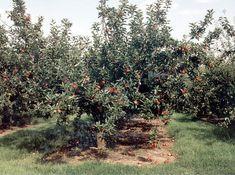
Apple growers in Herefordshire may soon have a market for the thousands of tonnes of apples that are left to rot each year in their orchards.
Herefordshire Council has just finalised a contract with Advantage West Midlands, their Regional Development Agency, to undertake a feasibility study into whether apples can be converted into ultra-low carbon bio-alcohol, or ethanol. The study, which is due to start this week and be completed by November, will be undertaken by members of the Herefordshire Orchard Topic Group who are working to develop new markets for unwanted cider fruit.
Katie Eastaugh, who is leading the Orchard Topic Group, said it’s a very exciting project. “Orchards in Herefordshire who do not have long-term contracts are under threat following Defra’s new Single Farm Payment Scheme that does not include orchards. Certainly the traditional dual-purpose ones may be saved but the bush orchards will have no choice but to grub up later this year.”
She added: “If we have a market for these apples, we save our remaining orchards and give them a future, and have the potential to create a new industry in the county based on renewable energy.”
It is estimated around 40,000t of apples are no longer needed by either the fresh or processed sectors in Herefordshire. Richard Wood of Herefordshire Council, who sought the funding said: “A tonne of these surplus apples can produce around 60kg of ultra-low carbon bio-alcohol which we can use as a direct substitute for fossil fuel-derived methanol, currently used in the processing of bio-diesel. This high-quality bio-alcohol can also be sold to other markets including pharmaceuticals and food processing industries.”



